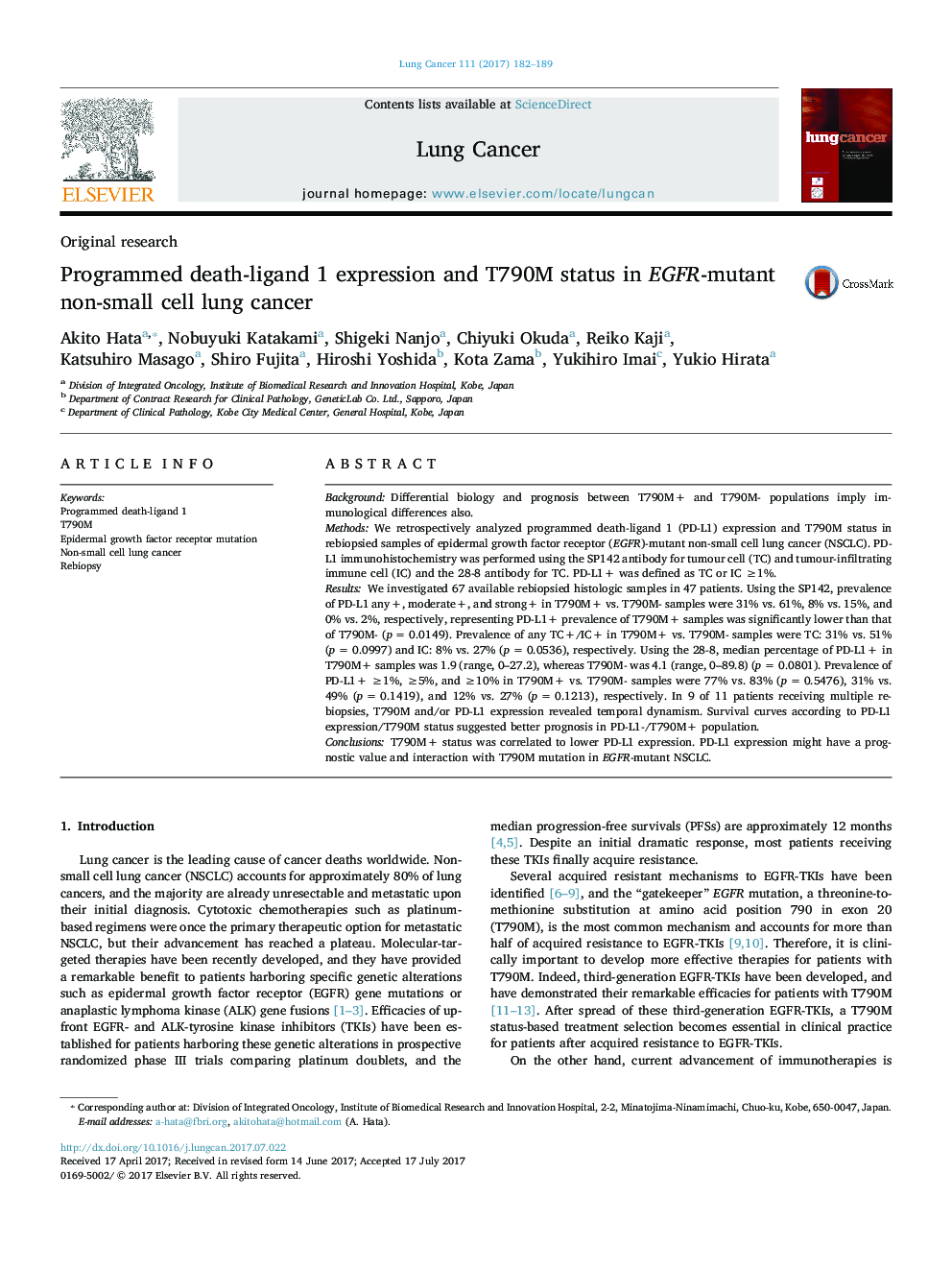| Article ID | Journal | Published Year | Pages | File Type |
|---|---|---|---|---|
| 5528338 | Lung Cancer | 2017 | 8 Pages |
â¢T790M+ status was correlated to lower PD-L1 expression.â¢PD-L1 expression seems to be dynamic and affected by EGFR-TKI treatment.â¢PD-L1 expression might have a prognostic value and interaction with T790M.
BackgroundDifferential biology and prognosis between T790M+ and T790M- populations imply immunological differences also.MethodsWe retrospectively analyzed programmed death-ligand 1 (PD-L1) expression and T790M status in rebiopsied samples of epidermal growth factor receptor (EGFR)-mutant non-small cell lung cancer (NSCLC). PD-L1 immunohistochemistry was performed using the SP142 antibody for tumour cell (TC) and tumour-infiltrating immune cell (IC) and the 28-8 antibody for TC. PD-L1+ was defined as TC or IC â¥1%.ResultsWe investigated 67 available rebiopsied histologic samples in 47 patients. Using the SP142, prevalence of PD-L1 any+, moderate+, and strong+ in T790M+ vs. T790M- samples were 31% vs. 61%, 8% vs. 15%, and 0% vs. 2%, respectively, representing PD-L1+ prevalence of T790M+ samples was significantly lower than that of T790M- (p = 0.0149). Prevalence of any TC+/IC+ in T790M+ vs. T790M- samples were TC: 31% vs. 51% (p = 0.0997) and IC: 8% vs. 27% (p = 0.0536), respectively. Using the 28-8, median percentage of PD-L1+ in T790M+ samples was 1.9 (range, 0-27.2), whereas T790M- was 4.1 (range, 0-89.8) (p = 0.0801). Prevalence of PD-L1+ â¥1%, â¥5%, and â¥10% in T790M+ vs. T790M- samples were 77% vs. 83% (p = 0.5476), 31% vs. 49% (p = 0.1419), and 12% vs. 27% (p = 0.1213), respectively. In 9 of 11 patients receiving multiple rebiopsies, T790M and/or PD-L1 expression revealed temporal dynamism. Survival curves according to PD-L1 expression/T790M status suggested better prognosis in PD-L1-/T790M+ population.ConclusionsT790M+ status was correlated to lower PD-L1 expression. PD-L1 expression might have a prognostic value and interaction with T790M mutation in EGFR-mutant NSCLC.
